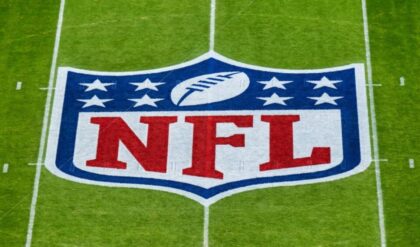
In the world of hip-hop and entertainment, few figures have loomed as large or as controversially as Sean “Diddy” Combs. Known for his multifaceted career as a rapper, producer, entrepreneur, and fashion icon, Diddy’s legacy is marked by both groundbreaking achievements and persistent scandals. Recent allegations and resurfaced claims have reignited debates about his influence, business practices, and personal life.
Diddy’s rise to fame began in the early 1990s as a talent director at Uptown Records before founding his own label, Bad Boy Records. Under his leadership, the label launched the careers of iconic artists like The Notorious B.I.G., Faith Evans, and Mase. Diddy’s knack for identifying talent and creating hit records quickly made him a dominant force in the music industry. His debut album, “No Way Out,” won a Grammy and solidified his status as a major artist in his own right.
Beyond music, Diddy has made significant inroads into fashion with his Sean John clothing line, which earned him a CFDA award. His ventures into spirits with Cîroc Vodka and DeLeón Tequila, as well as his media company, Revolt, showcase his diverse business acumen. Despite these successes, his career has been marred by persistent allegations and controversies.
The recent resurgence of accusations against Diddy began with viral comments from industry insiders and former associates. Gene Deal, Diddy’s former bodyguard, has been particularly vocal, alleging that Diddy was involved in various nefarious activities, including exploitation and abuse. Deal’s claims include witnessing questionable rituals and business practices, which he suggests were part of a darker side of the music industry.
Mase, another former Bad Boy artist, has also accused Diddy of unethical business dealings. He claims Diddy withheld earnings and manipulated contracts to his disadvantage. These allegations are compounded by the untimely deaths of several artists associated with Bad Boy Records, including The Notorious B.I.G., Craig Mack, and Black Rob, leading to further speculation about the nature of Diddy’s business empire.

One of the most shocking aspects of the recent wave of allegations involves claims of sexual misconduct and coercion. These accusations suggest that Diddy engaged in predatory behavior, using his power and influence to exploit young artists and associates. Former employees and associates have alleged that Diddy maintained control over individuals through various means, including intimidation and financial manipulation.
Chris Brown’s recent revelations about narrowly escaping becoming a concubine for Diddy, as well as accusations from other artists about being subjected to demeaning rituals and contracts, paint a disturbing picture. These stories have fueled ongoing speculation about the true nature of Diddy’s influence and the lengths to which he might have gone to maintain his power.
The allegations against Diddy are not just personal attacks; they raise broader questions about the music industry’s culture and the treatment of artists. The power dynamics within the industry often leave young, aspiring artists vulnerable to exploitation by more established figures. Diddy’s case highlights the need for greater transparency and accountability in the business practices of record labels and entertainment companies.
As more individuals come forward with their stories, the industry is forced to reckon with its past and present practices. The call for reform and protection for artists is growing louder, emphasizing the importance of ethical conduct and respect for the rights and dignity of all individuals within the entertainment sector.
Sean “Diddy” Combs remains a towering figure in the music and entertainment industry, but his legacy is undeniably complex. While his contributions to music and culture are significant, the persistent allegations of misconduct cast a long shadow over his achievements.
As the industry continues to evolve, it must address these issues head-on, ensuring that the exploitation and abuse of power become relics of the past. The story of Diddy is a reminder of the importance of integrity and the ongoing struggle for fairness and justice in the world of entertainment.
VIDEO:





